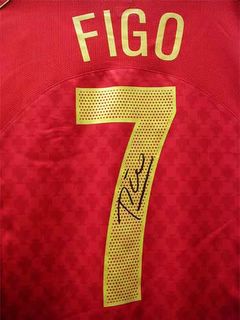
www.pulodolobo.blogspot.com 
John Maxwell Coetzee, better known as J.M. Coetzee, was born in South Africa on February 9th, 1940. His father worked for the government and also as a sheep farmer. When Coetzee was eight, his father lost the government job due to his differing views from the then apartheid government. The family then moved to the provincial town of Worcester.
During his early years, his studies were done in Cape Town where he obtained his B.A. in 1960 and his M.A. in 1963. He then traveled the world working as a systems programmer for International Computers in Bracknell, Berkshire from 1964-1965. He later obtained his P.H.D. in literature from the University of Texas at Austin in 1969. Upon completion of these studies, he returned to his native land of South Africa to join up as a lecturer at the University of Cape Town in 1972 until 1983. In 1984 and 1986 he would again journey overseas to become the Butler Professor of English at the State University of New York in Buffalo. He was then the Hinkley Professor of English at John Hopkins University in 1986 and 1989 and the Visiting Professor of English at Harvard University in 1991. J.M. Coetzee was married in 1963 and then divorced in 1980. He had one son and one daughter from the marriage. His son was killed in an accident at the age of 23. Coetzee’s separation from his wife before his divorce was widely expected by his friends as many labeled him as a reclusive and private man. This label was further evidenced by the fact that he did not journey to London to receive the Booker Prize in 1984 for his novel: The Life and Times of Michael K, nor when he again won the honor for his novel Disgrace in 1999.
Author Rian Malan descibes Coetzee as: "a man of almost monkish self-discipline and dedication. He does not drink, smoke or eat meat. He cycles vast distances to keep fit and spends at least an hour at his writing-desk each morning, seven days a week. A colleague who has worked with him for more than a decade claims to have seen him laugh just once. An acquaintance has attended several dinner parties where Coetzee has uttered not a single word." (qtd. In Cowley)
However, Coetzee's solitude has not allowed him to go unnoticed in any way. His books have become worldwide bestsellers and he is the only author to have ever won the Booker Prize twice.
J.M. Coetzee is a writer who is strongly influenced by his own personal background of being born and growing up in South Africa. Although a white writer living in South Africa during apartheid, Coetzee grew to believe in and write with strong anti-imperialist feelings. His international writings tended to set him apart from fellow authors in South Africa and his writing was said to be mostly influenced by the postmodernist writers of Europe and America. These writers also contained many anti-imperialist sentiments as a reaction to the Vietnam war. Many of Coetzee's personal experiences and beliefs can be seen in his books. Coetzee describes his sense of alienation from fellow Afrikaners in his biography, Boyhood:Scenes from Provincial Life. Coetzee also writes in his biography and his novels about the laws that divided himself and others into racial categories that served to further alienate him.
This is evidenced in his first novel Dusklands. In this book Coetzee focuses on two settings: one, the US State Department during the Vietnam era and two, stories of the exploration and conquest of Southern Africa in the 1760’s by a man named Jacobus Coetzee. These two vastly different locations work together to bring out the alarm and paranoia of aggressors no matter what the location and to show the unthinkable ways in which dominant groups impose their ways upon other cultures.
His first novel to win the Booker Prize, The Life and Times of Michael K, is set in Cape Town, a city on the verge of racials wars, and centers around a gardener who attempts to transport his dying mother to the farm of her youth. Although she dies during the journey, Michael K continues on to her farm with her ashes. He lives quite happily in solitude on her old farm until he is captured and accused of aiding guerillas. The great weight of the novel relies on the fact that it does not focus in on racial separations but is more concerned with saving humanity as a whole.
In his latest novel and the one responsible for garnering him a second Booker prize, Disgrace, Coetzee deals with a South African professor name David who goes out to visit his daughter, Lucy's, farm. While he is there a gang of two men and one boy rapes his daughter. When he later sees the boy at a party thrown by Lucy's neighbor, Petrus, he demands justice. Petrus refuses, and promises protection from further attacks to Lucy only if she marries him. The issues in this novel deal with many of the current plights of South Africa. Land, crime, rape, lack of police protection and racial divides are all themes of the novel and problems in modern day South Africa.
All of Coetzee's writings are similar in that they often center on a solitary character. No direct moral is ever given, but rather situations are set up for the reader to think about. Coetzee’s aim is not to provide solutions, but to highlight problems and have the reader form their own conclusions.







